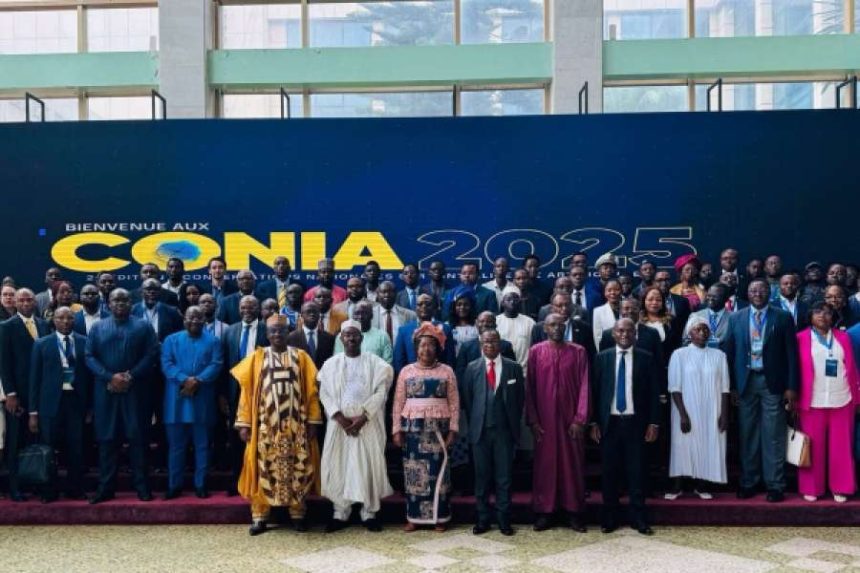Cameroon has officially launched its National AI Strategy (SNIA), a policy aimed at positioning the country as a continental leader in AI innovation by the year 2040.
The announcement was made by Minette Libom Li Likeng, Minister of Posts and Telecommunications, during the second edition of the National Consultations on AI on Monday, July 7, 2025.
“This strategy, anchored in a vision for 2040, aims to position the country as a continental AI hub by focusing on sovereign, inclusive, and sustainable solutions rooted in African cultural realities,” the statement read.
According to the Minister, the strategy envisions an AI future grounded in African cultural realities. SNIA proposes not only a technological leap but also a reshaping of Cameroon’s digital identity.
What Is SNIA?
The SNIA (Stratégie Nationale d’Intelligence Artificielle) is a national roadmap for developing and deploying artificial intelligence solutions tailored to Cameroon’s socio-cultural context.
“The SNIA seeks to make Cameroon the leading AI hub in Africa by promoting solutions based on African values,” the statement added.
The key goals of SNIA include:
- Training 60,000 individuals, 40% of whom will be women
- Creating 12,000 direct jobs in AI-related sectors
- Achieving a 0.8%–1.2% contribution to national GDP through AI
- Developing 12 sovereign, high-impact AI solutions
- Launching multilingual language models that reflect Cameroon’s linguistic and cultural diversity
Seven Strategic Pillars to Shape Cameroon’s AI Future
SNIA is structured around seven interconnected pillars, each designed to lay the foundation for a fully autonomous and resilient AI ecosystem:
- Governance and Digital Sovereignty: Establishes a Presidential AI Council and a dedicated AI Authority, with a focus on ethical standards and inter-ministerial coordination. A new legislative framework will underpin AI governance.
- Data and Digital Infrastructure: Proposes a national Data Lake, mass digitisation of public services, and an Open Data policy to enable large-scale AI training and deployment.
- Multilingual and Inclusive AI: Introducess “GPT Cameroon”, a locally trained language model that prioritises national and indigenous languages to ensure accessibility and relevance.
- Sovereign Technological Infrastructure: Envisions 15 regional edge computing nodes powered by solar microgrids, providing decentralised and energy-resilient AI capabilities.
- Training, Research, and Human Capital: Plans to build five AI Centres of Excellence, train 4,000 individuals annually, and create a diaspora return programme to attract top talent.
- Innovation and Sectoral Applications: Encourages AI integration into health, agriculture, justice, and education, while supporting local startups with funding, accelerators, and pilot initiatives.
- Cooperation and Regional Outreach: Proposes the formation of a Central African AI Network, boosting regional collaboration and exporting “Made in Cameroon” digital products.
Why It Matters
Cameroon’s AI strategy arrives at a time when African nations are racing to secure digital sovereignty, reduce dependency on foreign platforms, and develop technologies that reflect local realities.
Across Africa, several countries are increasingly adopting artificial intelligence to drive development. Rwanda is one of the early leaders, having developed a National AI Policy to drive innovation in healthcare, agriculture, and finance.
Nigeria has developed a national strategy to guide the responsible development and deployment of AI, with the National Centre for Artificial Intelligence and Robotics (NCAIR) focusing on AI research.
South Africa has also developed guidelines for AI ethics and governance and boasts a vibrant startup scene in machine learning and natural language processing.
According to experts, by building local datasets and training models on indigenous languages, Cameroon looks set to bridge digital divide and ensure equitable access to AI-powered services nationwide.
Analysts added that the timing of the SNIA is critical. As AI continues to redefine economies, education, healthcare, and security worldwide, Cameroon’s stance allows it to leapfrog legacy infrastructure challenges.
Talking Points
At Techparley, we see Cameroon’s National AI Strategy as a bold and necessary leap toward digital independence in Africa.
It’s notable that SNIA places African cultural values and linguistic diversity at the heart of AI development, moving beyond replication to true localisation.
The introduction of “GPT Cameroon” and the emphasis on multilingual models is not just a technological step forward, it’s a cultural one, reinforcing the idea that AI can be African by design.
Cameroon’s plan to train 60,000 people, including 40% women, speaks to a long-term vision where inclusion and human capital development aren’t afterthoughts but core pillars of national innovation.
With solar-powered edge computing nodes, local data lakes, and regional collaboration built in, SNIA isn’t just a strategy, it’s a statement that Africa can define its own AI future on its own terms.





